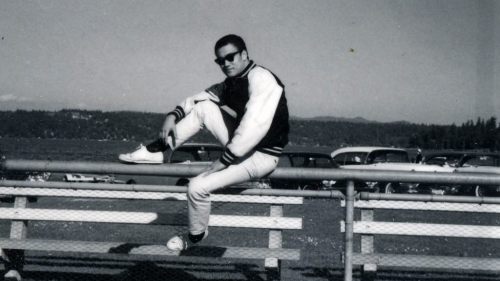Fantastic Fest Review: IRON FISTS AND KUNG FU KICKS Is The Story Of A Genre
I’m a fan of kung fu films, but not a devotee of the genre. I think that places me in the primary audience for Iron Fists and Kung Fu Kicks, a highly enjoyable and moderately informative documentary about the history of kung fu cinema. Serge Ou’s film is a sweeping overview of the genre, telling the stories of its creators, its fans, and its influence on the world at large over the 50 years since its creation. Some of Iron Fist’s sprawl might feel a little unfocused at times, or overly brisk in its race to make sure everyone gets mentioned, but that doesn’t take away from the fact that this is an incredibly fun film and a great entry point for new fans.
While the film gives some insight into how kung fu movies were first conceived—touching on the genre’s origins in Peking opera—Iron Fists and Kung Fu Kicks is mostly concerned with how the films were distributed, received, and adapted in the West. This isn’t a flaw—it is an Australian production after all—but a clarification on the doc's point of view. Films and filmmakers who became popular in the West get the most attention here, and most of the interviews are with westerners.
Still, the diversity of the interviews is one of the film’s strongest suits. Actors, writers, producers, stunt professionals, martial artists, editors, dub artists, historians and fans are all well-represented here. You can’t claim Iron Fists doesn’t appreciate that there are no small roles in movie-making.
Iron Fists and Kung Fu Kicks doesn’t neglect the heavyweights either: the Shaw Brothers, Golden Harvest, Jackie Chan, and Yuen Woo-ping get tributes. But by far the longest passage of the film is on the career and legacy of Bruce Lee. Lee’s unique screen presence and stratospheric contributions to the kung fu genre are well-conveyed, to the point that I walked out of Iron Fists excited to revisit his films. A weakness of this section is how Lee’s training by Ip Man is entirely glossed over, even while the doc praises Lee’s athletic rigor and creative fighting style.
The Lee section is also where the doc chooses to address Westerners’ cultural appropriation and whitewashing of martial arts. By focusing on how this affected Bruce Lee’s career, the doc becomes surprisingly in-depth. As with most things, Hollywood didn’t realize what they had with Lee until it was too late. The controversy around ABC’s Kung Fu—a series which starred David Carradine in yellowface and was likely based on a stolen idea of Lee’s—is fully recounted to contextualize how the rise of kung fu cinema in the West clashed with Hollywood’s racist discrimination practices.
Once Iron Fists and Kung Fu Kicks finishes exploring Bruce Lee’s biography—as well as the subgenre of Bruce-sploitation cinema that proliferated in the wake of his death—the doc becomes a sprint to catalogue every major martial arts film development up until recent years. Obviously, the film isn’t able to offer a detailed exposé on any of these topics, but it’s still interesting to see the film’s arguments for how martial arts films influenced American breakdance, which then gave rise to hip-hop. Or how Hong Kong martial arts choreography influenced American action movies in the 90s, changing the landscape of action films worldwide. None of this information is really ground-breaking, but it’s convenient to have all this info compiled in one place for newcomers.
My main areas of enjoyment with Iron Fists are the parts where it acknowledges how weird kung fu movies can be. From the written-on-the-fly scripts of most of the Golden Harvest films, to the obnoxious dubbing practices the films underwent for their western releases, to their incredibly lax and dangerous stunt practices, I was thoroughly entertained. If you’re a fan of kung fu movies—or just interested in emergent cinema in any way—then maybe you’ll be entertained, too.



